Essential Effective Search Engine Optimization Strategies for Newbies
Effective Search Engine Optimization Strategies for Beginners
Many beginners struggle with getting their websites noticed in search results. With over 90% of online experiences starting with a search engine, mastering effective search engine optimization (SEO) is essential for growth. This article will cover key strategies such as implementing effective keyword research, creating high-quality content, and optimizing technical aspects of your site. By applying these methods, readers will enhance their visibility and authority online, ultimately driving more traffic to their sites and addressing the challenges of low search rankings.
Key Takeaways
- Effective keyword usage is essential for improving online visibility and user engagement
- Mobile optimization significantly influences search rankings and user satisfaction across various devices
- Regularly updating content and SEO strategies enhances relevance and aligns with current user search intent
- Quality backlinks from reputable sources build authority and improve search engine rankings
- Utilizing analytics helps track SEO performance and inform data-driven decision-making
Understand the Basics of Search Engine Optimization for Growth

Key SEO components are essential for enhancing website visibility, particularly for businesses in Rhode Island utilizingsearch engine optimization ri. Effective keyword usage plays a significant role in optimizing content, while on-page and off-page strategies ensure a comprehensive approach. User experience heavily impacts search rankings through search engine optimization RI, and mobile optimization cannot be overlooked. Additionally, analytics are vital for measuring SEO success and driving informed decisions around budget and reputation management in social media marketing.
Identify Key SEO Components to Drive Website Visibility
Effective search engine optimization hinges on several key components that drive website visibility. Graphic design plays a crucial role in engaging visitors, as a visually appealing site tends to lower bounce rates and encourage interaction. Coupled with content marketing, quality content that incorporates relevant keywords helps improve rankings and draw organic traffic. Furthermore, integrating digital marketing strategies, such as targeted email campaigns, enhances user engagement while maintaining a strong online presence. Web development practices, focusing on mobile optimization, ensure that sites perform well across devices, ultimately contributing to improved search rankings and user satisfaction.
Learn the Role of Keywords in Optimizing Your Content
Keywords serve as a critical foundation in search engine optimization, particularly when businesses aim to improve their visibility on platforms like Google and Instagram. By strategically incorporating terms such as "photography" and "marketing," website owners can align their content with user search intent, making it easier for potential customers to discover their offerings. To enhance effectiveness, regularly updating keyword strategy based on current trends and analytics ensures that content remains relevant and optimized for both search engines and audience engagement.
Explore on-Page and Off-Page SEO Strategies for Effectiveness
On-page and off-page SEO strategies are both crucial for optimizing a brand’s visibility on the internet. On-page SEO includes techniques such as optimizing website design, ensuring that content is high-quality, and effectively using keywords throughout pages. Off-page strategies, like managing backlinks and social media presence on platforms like Facebook, can significantly enhance a brand's authority and reputation online. Understanding and implementing these approaches can lead to improved search engine rankings and greater visibility for businesses.
| SEO Strategy | Description | Examples |
|---|---|---|
| On-Page SEO | Optimizing elements on your own website to improve search rankings. | Keyword placement, quality content, website design. |
| Off-Page SEO | Building authority and trust on other websites to enhance your own. | Backlinks, social media management, brand mentions. |
Recognize How User Experience Influences Search Rankings
User experience plays a vital role in search rankings, as search engines prioritize sites that deliver quality interactions for users. Elements such as page load speed, intuitive navigation, and mobile optimization directly influence how visitors engage with a site, which in turn affects its performance in search engine optimization, especially in markets like Rhode Island. Businesses that analyze user behavior through analytics can identify areas for improvement, ensuring their message is compelling and engaging across all platforms, including social media and during the digital transformation journey.
| User Experience Factor | Impact on SEO | Improvement Strategy |
|---|---|---|
| Page Load Speed | Faster load times reduce bounce rates, enhancing search ranking. | Optimize images and leverage browser caching. |
| Navigation | Intuitive navigation increases user engagement and time spent on site. | Simplify menus and use clear labels. |
| Mobile Optimization | Improved mobile experience boosts rankings on mobile search results. | Implement responsive design techniques. |
Investigate the Impact of Mobile Optimization on SEO
Mobile optimization significantly influences search engine rankings, particularly as mobile device usage continues to rise. Search engines, such as Google, prioritize sites that provide a seamless experience on smartphones and tablets, impacting visibility in search results. Effective web design that incorporates responsive layouts and fast-loading pages can enhance user satisfaction and engagement, ultimately leading to improved performance in Google Ads campaigns and organic search outcomes.
Grasp the Importance of Analytics in Measuring SEO Success
Analytics play a crucial role in measuring SEO success, enabling businesses to assess the effectiveness of their strategies and make data-driven decisions. By tracking key performance indicators such as organic traffic, bounce rates, and conversion rates, companies can identify areas of improvement and optimize their content accordingly. Regular analysis of these metrics helps refine SEO practices, ensuring that efforts are aligned with audience engagement and overall business goals.
To grow in search rankings, understanding SEO is just the start. Next, mastering keyword research will guide you toward real success on the path ahead.
Implement Effective Keyword Research Techniques for SEO Success

To achieve effective SEO success, beginners must focus on several key techniques. Utilizing keyword research tools helps in identifying relevant terms that match user queries. Analyzing search intent clarifies keyword effectiveness, while categorizing keywords enhances content organization. Regular monitoring of keyword performance ensures ongoing improvement, allowing for the optimization of existing content based on insights gained. Each of these practices plays a significant role in elevating search engine visibility.
Utilize Keyword Research Tools to Find Relevant Terms
Utilizing keyword research tools is a fundamental step for beginners aiming to enhance their search engine optimization efforts. These tools, such as Google Keyword Planner and SEMrush, offer insights into popular search terms, enabling users to identify keywords that resonate with their target audience. By focusing on these relevant terms, businesses can create content that aligns with user intent, ultimately increasing visibility and attracting organic traffic to their websites.
Analyze Search Intent to Determine Keyword Effectiveness
Analyzing search intent is crucial for determining the effectiveness of keywords in search engine optimization. Understanding the motivations behind user queries allows businesses to create content that directly addresses customer needs, which increases the likelihood of engagement and conversion. For example, differentiating between informational, navigational, and transactional intent helps optimize website offerings accordingly, ensuring that the right keywords are connected to the appropriate types of content, ultimately enhancing visibility and user satisfaction.
Categorize Keywords for Better Content Organization
Categorizing keywords is a fundamental practice that enhances content organization and improves search engine results. By grouping keywords into relevant categories based on their themes or intents—such as informational, navigational, or transactional—businesses can create focused content that addresses specific audience needs. For example, a photography business might categorize keywords into sections like "portrait photography" and "product photography," allowing for the development of tailored blog posts that capture diverse user queries effectively.
Monitor Keyword Performance Regularly for Ongoing Improvement
Regularly monitoring keyword performance is essential for ongoing improvement in search engine optimization strategies. By utilizing tools like Google Analytics and SEMrush, businesses can track metrics such as keyword rankings, organic traffic, and user engagement. This data enables them to make informed decisions on content adjustments, ensuring that keyword strategies align with shifting search trends and audience interests, ultimately enhancing online visibility and driving sustained growth.
Optimize Existing Content Based on Keyword Insights
Optimizing existing content based on keyword insights involves revisiting articles, blog posts, and web pages to ensure they align with current keyword strategies. By analyzing keyword performance data, businesses can identify underperforming content and adjust it to include relevant terms that resonate with their audience. This approach not only enhances search visibility but also increases the chances of engaging users, as updated content is more likely to fulfill their search intent effectively.
Having identified the right keywords, the next step is clear. Quality content will draw readers in and keep them there, making it essential for success.
Create High-Quality Content That Ranks Well in Search Engines

Creating high-quality content is fundamental for effective search engine optimization. Engaging content that meets user needs is essential, while incorporating multimedia elements can enhance user interaction. Maintaining a consistent posting schedule supports visibility, and using SEO best practices in formatting aids search rankings. Additionally, attention-grabbing headlines that include keywords play a critical role in attracting clicks and improving discoverability.
Develop Engaging Content That Meets User Needs
Developing engaging content that meets user needs is essential for effective search engine optimization. This involves thoroughly understanding the target audience and addressing their specific pain points through informative and relevant content. For instance, businesses can enhance connection by creating how-to guides or troubleshooting tips that provide solutions, thereby increasing the likelihood of higher engagement and better search rankings.
Incorporate Multimedia Elements to Enhance User Engagement
Incorporating multimedia elements, such as images, videos, and infographics, significantly enhances user engagement on websites. These components not only break up text but also provide additional context, making the content more relatable and appealing to visitors. For instance, a blog post that includes a video tutorial alongside written instructions can cater to different learning styles, improving retention and increasing the likelihood of shares and backlinks, which are crucial for search engine optimization.
| Multimedia Element | Benefit | Example |
|---|---|---|
| Images | Enhances visual appeal and breaks text monotony. | Relevant images illustrating key points in an article. |
| Videos | Increases engagement and retention by catering to visual learners. | Tutorial videos showcasing product usage in a blog post. |
| Infographics | Simplifies complex information, making it more digestible. | Visual representation of data or statistics within a research piece. |
Maintain a Consistent Posting Schedule for Visibility
Maintaining a consistent posting schedule is vital for enhancing online visibility and improving search engine rankings. Regularly updated content keeps the audience engaged while signaling search engines that a site is active and relevant. For instance, businesses can benefit from posting weekly blog entries or monthly newsletters, providing fresh insights and encouraging repeat visits, which contributes positively to SEO performance.
| Posting Frequency | Benefit | Example |
|---|---|---|
| Weekly | Keeps audience engaged and supports SEO through regular updates. | Weekly blog posts on industry trends. |
| Monthly | Encourages deeper engagement with comprehensive content. | Monthly newsletters summarizing key insights. |
| Quarterly | Allows for in-depth exploration of complex topics. | Quarterly whitepapers or case studies. |
Use SEO Best Practices in Content Formatting and Structure
Using SEO best practices in content formatting and structure is essential for achieving higher search engine rankings. Effective use of headings, subheadings, and bullet points organizes information and makes it easily digestible for readers, which enhances user experience. For instance, incorporating relevant keywords in headings not only aids in SEO but also signals to both users and search engines what the content will address, ultimately improving visibility and engagement.
Craft Attention-Grabbing Headlines That Include Keywords
Crafting attention-grabbing headlines is essential for effective search engine optimization, as these headlines serve as the first impression for potential readers. Incorporating relevant keywords within these headlines not only improves visibility in search engine results but also aligns with user search intent, making it easier for visitors to find valuable content. For instance, a headline like "Top 10 SEO Strategies for Beginners" directly communicates the content's purpose while incorporating key search terms that potential readers are likely to use.
- Understand the significance of headlines in SEO.
- Incorporate relevant keywords to enhance visibility.
- Ensure headlines reflect user search intent.
- Use clear and concise language.
- Test different headline formulations for effectiveness.
Quality content lays the foundation for visibility. Now, turning attention to the hidden workings of your site will further boost your journey in search rankings.



















